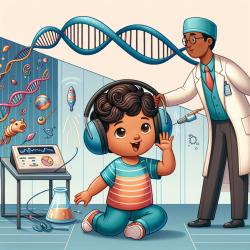Understanding the Impact of Sex and Gender in Speech Therapy
In the realm of speech therapy, particularly for children, practitioners often seek to optimize outcomes by tailoring interventions to the unique needs of each child. Recent research, such as the study titled "Sex and gender: modifiers of health, disease, and medicine," published in The Lancet, provides valuable insights into how sex and gender differences can be leveraged to enhance therapeutic outcomes.
The Role of Sex and Gender in Health and Disease
Sex and gender are crucial modifiers of health and disease, influencing everything from disease prevalence and progression to treatment responses. The study highlights that biological sex differences begin at conception and are evident in the genetic makeup of cells, while gender encompasses the socially constructed roles and behaviors that can impact health outcomes.
Implications for Speech Therapy
For speech therapists, understanding these differences can lead to more effective, personalized interventions. Here are some key takeaways from the research that can be applied to speech therapy:
- Genetic and Hormonal Influences: Recognizing that genetic and hormonal differences can affect language development and cognitive functions can help therapists tailor their approaches. For instance, boys and girls may exhibit different language acquisition patterns, which can be attributed to these biological factors.
- Gender Roles and Communication Styles: Gender roles can influence communication styles and preferences. Therapists should consider these social constructs when developing strategies to engage children in therapy sessions effectively.
- Precision Medicine in Speech Therapy: The concept of precision medicine, which involves tailoring medical treatment to the individual characteristics of each patient, can be extended to speech therapy. By considering both sex and gender, therapists can design interventions that are more aligned with each child's unique needs.
Encouraging Further Research
While the study provides a foundational understanding of sex and gender differences, there is a need for further research specifically focused on speech therapy. Practitioners are encouraged to explore how these differences manifest in language development and disorders, and how interventions can be optimized accordingly.
Conclusion
Incorporating sex and gender considerations into speech therapy can lead to more personalized and effective interventions. By leveraging the insights from the study, practitioners can enhance their understanding and improve outcomes for children in their care.
To read the original research paper, please follow this link: Sex and gender: modifiers of health, disease, and medicine.










